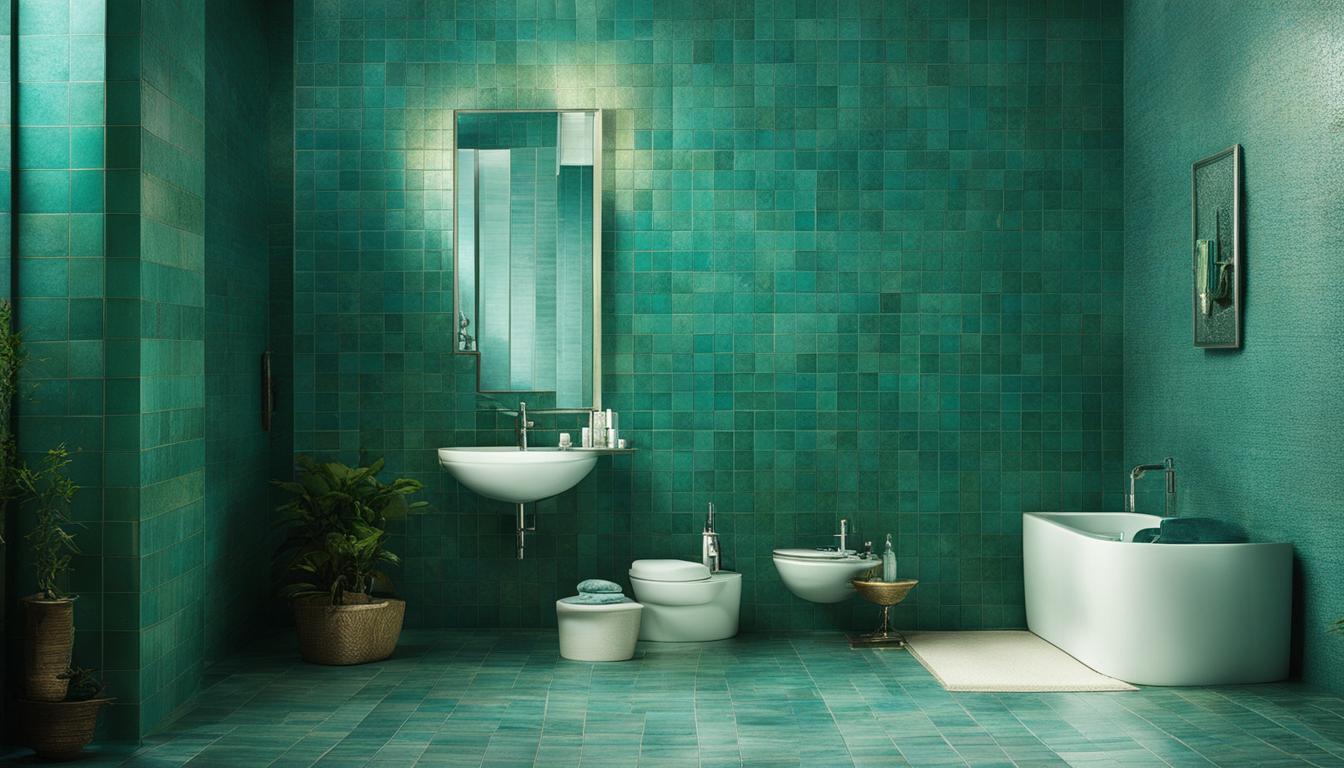Ablution, or Wudu, is an important ritual practice for Muslims that emphasizes both spiritual purity and physical cleanliness. It is crucial to understand what breaks ablution in order to maintain its validity. This comprehensive guide will explore the seven key actions and events that nullify ablution, as outlined in various Islamic sources. By understanding these factors, Muslims can ensure that their ablution is performed correctly and in accordance with Islamic teachings.
Key Takeaways:
- There are seven key actions and events that break ablution in Islam.
- Natural bodily excretions, such as urine, feces, and passing of gas, invalidate ablution.
- Deep sleep and unconscious discharges during sleep require a fresh ablution.
- Skin-to-skin contact with genitals without a barrier breaks the state of purity required for prayer.
- Loss of consciousness, whether due to fainting or intoxication, nullifies ablution.
Factors That Break Ablution: Natural Bodily Excretions
When it comes to maintaining the validity of ablution, understanding the factors that break it is essential. One of the fundamental aspects to consider is the presence of natural bodily excretions. According to Islamic teachings, the act of ablution is nullified by the discharge of urine, feces, or the passage of gas. These substances are considered impurities that create a barrier during prayer.
It is important for Muslims to renew their ablution after experiencing these natural bodily functions before resuming acts of worship. By doing so, they ensure that they are in a state of purity as required by Islamic teachings. To emphasize the significance of this practice, various Islamic sources lay out guidelines for Muslims to follow in order to maintain their ablution.
These guidelines serve as a reminder that proper ablution is not only a physical cleansing but also a spiritual one. By abstaining from prayer until ablution is renewed after natural bodily excretions, Muslims demonstrate their dedication to the principles of purity and cleanliness in their worship.
Factors That Break Ablution: Sleep and Unconscious Discharges
A deep, unaware slumber can also break ablution. During profound sleep, individuals may experience unconscious discharges, which necessitate a fresh ablution. It is important to note that fleeting naps do not disrupt the validity of ablution, but prolonged deep sleep does. This rule is based on various hadiths and the understanding that deep sleep makes a person unaware of their surroundings and bodily functions.
Sleep is a natural bodily function that rejuvenates the body and mind. However, in the context of ablution, the state of deep sleep poses a challenge. When a person enters a deep sleep state, they lose awareness of their surroundings and bodily functions. It is during this state that unconscious discharges, such as urine or impure gases, can occur without the person being consciously aware.
As a result, Islamic teachings state that a fresh ablution is required after waking up from deep sleep. This ensures that the individual starts their acts of worship with a purified state. While fleeting naps or light sleep do not break ablution, prolonged periods of deep sleep invalidate the previous ablution.
Sleeping Positions and Ablution
It is worth mentioning that the specific sleeping position or posture does not affect the validity of ablution. Whether a person sleeps on their back, stomach, or side, the requirement to renew ablution after prolonged deep sleep remains consistent. The focus is on the state of deep sleep itself, rather than the position in which one sleeps.
Overall, understanding the impact of sleep and unconscious discharges on ablution is essential for practicing Muslims. By being aware of these factors, individuals can ensure that they maintain the necessary state of purity for their acts of worship. Adequate knowledge and observance of ablution requirements contribute to the spiritual and physical cleanliness emphasized in Islam.
Factors That Break Ablution: Skin-to-Skin Contact with Genitals
One of the key factors that nullify ablution in Islam is skin-to-skin contact with one’s genitals. This means that any physical contact with the private parts, without the presence of a barrier, breaks the state of purity required for prayer. Islamic teachings emphasize the importance of maintaining physical boundaries in order to preserve spiritual and physical cleanliness.
This ruling is derived from various hadiths, which are the sayings and actions of Prophet Muhammad (peace be upon him). These hadiths highlight the connection between skin-to-skin contact with the genitals and the potential arousal it may cause. By prohibiting such contact during ablution, Islam encourages individuals to maintain a state of modesty and focus during prayer.
It is worth noting that Islam promotes a holistic approach to purity, both inwardly and outwardly. Therefore, avoiding skin-to-skin contact with the genitals adds an extra layer of cleanliness to the ablution process, ensuring that Muslims can engage in worship with a clear and focused mind.

Understanding the factors that break ablution, such as loss of consciousness, is crucial for Muslims in order to maintain the validity of their ablution and subsequent acts of worship. By following the guidelines set forth in Islamic teachings, individuals can ensure that they perform ablution correctly and in accordance with religious requirements.
Factors That Break Ablution: Intake of Camel Meat and Bleeding
The comprehensive understanding of what breaks ablution extends to the intake of camel meat and instances of bleeding. In Islamic teachings, the consumption of camel meat is considered to disrupt the state of purity required for prayer. As a result, it is essential for Muslims who have consumed camel meat to renew their ablution before engaging in acts of worship.
Furthermore, instances of profuse bleeding, whether from wounds or nosebleeds, are also regarded as events that nullify ablution. Islamic scholars emphasize the importance of maintaining a state of cleanliness and purification during prayer. Therefore, when there is an abundant loss of blood, renewing the ablution becomes necessary to ensure adherence to Islamic principles.
These guidelines are rooted in various hadiths and the understanding that blood is considered an impurity in Islam. By being aware of the factors that break ablution, Muslims can uphold the essence of spiritual and physical cleanliness in their worship practices.
Image:
Overall, understanding the factors that break ablution is crucial for Muslims in maintaining the validity of their ablution. By adhering to the teachings of Islam, Muslims can ensure that their acts of worship are performed correctly and in accordance with the principles of spiritual purity and physical cleanliness.
Factors That Break Ablution: Vomiting a Mouthful or More
Ejecting a mouthful or more through vomiting is categorized as an event that breaks ablution. Whether due to illness or any other reason, the act of vomiting expels impurities from the body, resulting in the nullification of the prior ablution. Islamic scholars have established that the volume of the expulsion is crucial in determining the invalidity of the ablution. It is important for practicing Muslims to be aware of this factor in order to maintain the state of purity required for prayer.
While there isn’t a specific hadith or verse in the Quran explicitly mentioning this, it is a well-known consensus among Islamic scholars. They uphold the principle that any act or event that expels impurities from the body, such as vomiting, necessitates the renewal of ablution before engaging in acts of worship. This emphasis on purity reflects the Islamic commitment to both spiritual and physical cleanliness.
Understanding the factors that break ablution is vital for Muslims to perform their religious duties correctly. By being aware of events like vomiting a mouthful or more, individuals can ensure that their ablution remains valid and that their prayers are offered in accordance with Islamic teachings. This comprehensive guide has explored the seven key actions and events that nullify ablution, providing a holistic understanding of what breaks ablution in Islam.
FAQ
What are the factors that break ablution?
The factors that break ablution include natural bodily excretions such as urine, feces, and passing of gas, deep sleep with unconscious discharges, skin-to-skin contact with genitals, loss of consciousness due to fainting or intoxication, intake of camel meat, profuse bleeding, and vomiting a mouthful or more.
Why do natural bodily excretions break ablution?
According to Islamic teachings, urine, feces, and passing gas are considered impurities that act as barriers during prayer. Muslims are required to renew their ablution before resuming acts of worship after experiencing these discharges.
How does deep sleep break ablution?
During profound sleep, individuals may experience unconscious discharges, which necessitate a fresh ablution. Fleeting naps do not disrupt the validity of ablution, but prolonged deep sleep does, as it makes a person unaware of their surroundings and bodily functions.
Why does skin-to-skin contact with genitals break ablution?
Physical contact with the private parts without a barrier can lead to sexual arousal, which breaks the state of purity required for prayer. Islamic teachings emphasize the importance of maintaining physical boundaries.
Why does loss of consciousness break ablution?
When a person becomes unaware of their state, whether due to fainting or intoxication, it is necessary to renew the ablution before engaging in acts of worship. This rule is derived from the concept of awareness in ablution and is a consensus among Islamic scholars.
Why does the intake of camel meat and profuse bleeding break ablution?
Islamic teachings consider camel meat to have properties that can disrupt one’s purified state, necessitating a fresh ablution after consumption. Similarly, when there is an abundant loss of blood from wounds or nosebleeds, renewing the ablution becomes necessary as blood is considered an impurity in Islam.
Why does vomiting a mouthful or more break ablution?
Ejecting a mouthful or more through vomiting is categorized as an event that breaks ablution. The volume of the expulsion plays a decisive role in determining the invalidity of the ablution.

